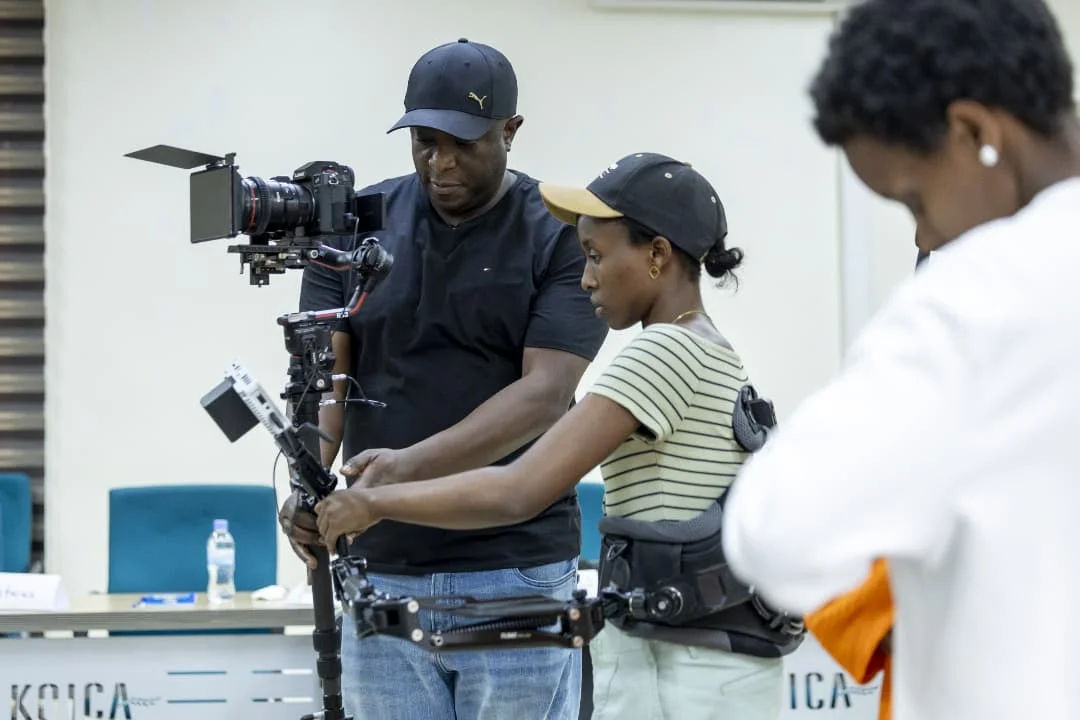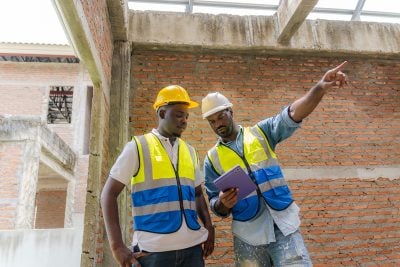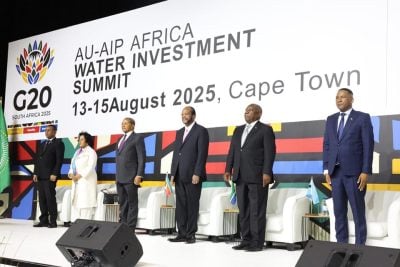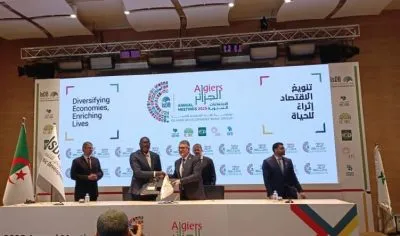This article was produced with the support of Moja Rising
At the core of Moja Rising: Creativity As Currency is the conviction that creativity itself is currency, a tangible asset that enables individuals and communities to thrive economically through the authentic expression of culture and innovation. Led by Bartech’s Collen Dlamini and Jonny Cohen, Moja Rising (which translates to “Together We Rise” in Swahili) embodies unity by fostering collaboration across Africa’s diverse creative sectors.
“The future of Africa is not decided in boardrooms alone: it is composed in studios, streets, and stages across the continent,” says Moja Rising’s executive producer Collen Dlamini. “This initiative is about recognising that creativity is a legitimate economic asset, one that fuels jobs, trade, and the dignity of making a living from cultural excellence.”
The creative industries contribute an estimated $58bn to Africa’s GDP, representing a vibrant ecosystem of creators and entrepreneurs shaping global markets in fashion, music, film, design and digital content. Yet, this economic powerhouse has remained under-recognised on the global stage. Moja Rising seeks to shift the dialogue from aid to investment, leveraging the momentum of South Africa’s G20 presidency to institutionalise Africa’s creative sector through partnerships, policy innovation, and sustained capital flows.
Moja Rising benefits from concrete institutional backing and has secured official endorsement from South Africa’s Department of Sport, Arts and Culture (DSAC), alongside co-investment from the City of Johannesburg. This provides the foundation for systematic creative sector development rather than project-by-project support.
Apt cultural activation
“This is an apt cultural activation, poised to spotlight Africa’s rich and diverse heritage to a global audience, positioning our nation’s arts, culture, and talent on an unparalleled global platform,” DSAC minister Gayton McKenzie says about Moja Rising.
Despite this strong foundation, African creative sectors still face persistent barriers including financing gaps, intellectual property risks, a predominance of informal businesses and limited infrastructure. Moja Rising’s strategy rises to meet these challenges by advocating for integrated policy frameworks, intellectual property protections, infrastructure development, forward-looking technology adoption, and strategic partnerships with industry leaders. This ecosystem approach transforms obstacles into scalable investment opportunities, enabling creatives to unlock the full economic potential of their work.
“The creative economy must move beyond the margins and become a pillar of economic strategy,” Moja Rising’s producer Jonny Cohen says. “By building physical infrastructure, legal frameworks, and cross-continental partnerships, Moja Rising institutionalises creativity as currency, creating sustainable livelihoods for generations to come.”
The infrastructure component extends beyond policy. Moja Rising will demonstrate this in a Creative Precinct for the G20 Creative Economy Summit. Combined with partnerships spanning 23 African countries, this creates a continental ecosystem optimised for both local authenticity and global market participation.
Strauss & Co contributes art market valuation and heritage expertise, while Adams & Adams provides intellectual property and creative rights protection, addressing two critical gaps that often limit African sector growth.
A partnership with the Soweto International Film Festival demonstrates how cultural storytelling connects to filmmaker networks, creating an integrated ecosystem where development, legal protection, market access, and authenticity operate systematically rather than independently.
Youth champion
At its heart, Moja Rising champions the continent’s youthful workforce, creating inclusive opportunities that foster equity, poverty alleviation, and empowerment. By equipping emerging creatives with business acumen, digital skills, and market access, the initiative not only drives growth but also engenders resilience and gender inclusion, positioning creativity as a catalyst for meaningful transformation.
Rwanda’s creative hubs train filmmakers, designers, and digital artists recruited by international agencies. Kenya’s digital content creators reach global audiences through mobile-first platforms. This approach creates pipeline optimisation for global creative economies rather than capacity building for local markets only. Nigeria and Ghana’s music exports influence global Afrobeats development. Ethiopia’s textile and leather sectors combine traditional craftsmanship with large-scale production capabilities.
“Creativity is not just a side hustle or a hobby; it is Africa’s new currency, fuelling jobs, trade, and dignity. Moja Rising is about unlocking that currency for every artist, entrepreneur, and community so the continent can rise together built on its own cultural wealth,” Dlamini says.
 Sign in with Google
Sign in with Google 



